Office of Research & Development |
 |

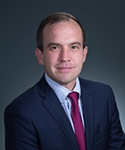
Robert L. Mauck, PhD (Director of CReATE Motion) is a Research Career Scientist and Co-Director of the Translational Musculoskeletal Research Center at the Corporal Michael J. Crescenz VA Medical Center in Philadelphia. He is also the Mary Black Ralston Professor of Education and Research in Orthopaedic Surgery and Professor of Bioengineering at the University of Pennsylvania. His research program is focused on the engineering and mechanobiology of musculoskeletal tissues, with a particular interest in restoring articular cartilage, the knee meniscus, and the intervertebral disc. Dr. Mauck’s team uses mechanical and molecular analyses to explore native tissue structure function relationships and employs this information to enhance the functional properties of engineered constructs through focused technology development. His work explores progenitor cell function and efficacy in a variety of biomaterial contexts and across multiple length scales, from subcellular biophysical properties to translation of engineered constructs in large animal models.
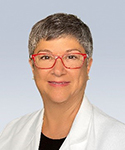
Carla R. Scanzello, MD, PhD (Associate Director of CReATE Motion) is an Associate Professor of Medicine at the University of Pennsylvania Perelman School of Medicine and is a practicing Rheumatologist who serves as Co-Director of the Multi-Disciplinary Osteoarthritis (OA) Clinic at the Corporal Michael J. Crescenz VA Medical Center (CMCVAMC) in Philadelphia. She is also Co-Director of the Translational Musculoskeletal Research Center at the CMCVAMC, where her laboratory is located. She is an active member of the American College of Rheumatology, the Orthopedics Research Society and the Osteoarthritis Research Society International (OARSI), and serves as Associate Editor for Arthritis and Rheumatology. Dr. Scanzello runs a translational research program funded by both the VA ORD and the NIH aimed at understanding how the innate immune system contributes to Osteoarthritis (OA) pathology and progression, with the ultimate goal of developing novel therapeutic strategies for this disease which disproportionately affects our U.S Veterans. She serves as the Director of Research and leads RFA#1 for the CReATE Motion Center.
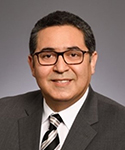
Hicham Drissi, PhD is a Research Scientist at the Atlanta VA Medical Center (AVAMC) and Professor & Vice Chair of Research in the Department of Orthopaedics at Emory University. He is the collaborative site director and leads RFA2 for the CReATE Motion Center. His research focuses on establishing the cellular and molecular mechanisms that govern skeletal tissue repair and regeneration. Dr Drissi’s commitment to advancing therapeutic strategies to enhance VA patient care is emphasized through various grant funded programs and his sustained commitment to orthopaedic research. He is currently supported by two VA Merit awards as well as funding from other sources. One of his Merit awards focuses on cartilage regeneration and PTOA, which relies on a major area of his expertise in using stem cells for cartilage preservation and joint tissue regeneration. He is also the scientific program director of an ongoing clinical trial using stem cell injections for knee OA.
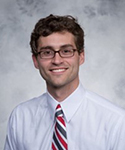
Joshua Baker, MD, MSCE is an Associate Professor of Rheumatology and Epidemiology at the University of Pennsylvania and at the Corporal Michael J. Crescenz VA, where his research has been supported primarily by VA Awards. Through this support he has focused on identifying modifiable risk factors with the goal of improving clinical care of chronic forms of arthritis, particularly rheumatoid arthritis, osteoarthritis, and gout. Specifically, he aims to conduct observational and interventional clinical studies with a focus on improving skeletal muscle health, obesity, bone, and joint health, cardiovascular disease, and other long-term outcomes in patients with common forms of arthritis. Dr. Baker is the co-director of the local VA NODEs (Network of Dedicated Enrollment Sites) consortium site at the CMCVAMC, and he serves as co-Leader for Research Core 3 of the CReATE Motion Center.
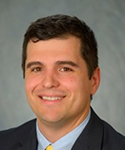
Josh Baxter, PhD is an Assistant Professor of Orthopaedic Surgery and the Director of the Human Motion Lab at the University of Pennsylvania. His research focuses on linking mechanical loads with musculoskeletal recovery and healing following injury and surgery using preclinical models and patient populations. His research is clinically impactful because he develops and deploys wearable sensor paradigms to continuously monitor patient activity and tissue-level loading to understand the mechanical mechanisms that explain functional outcomes. For the CReATE Motion Center, he co-leads Core #2: Rehabilitation Models & Tools, bringing expertise in structure-function imaging and clinically relevant functional outcome measures.

D. Kacy Cullen, PhD is Associate Professor of Neurosurgery & Bioengineering at the University of Pennsylvania and the founding Director of the Center for Neurotrauma, Neurodegeneration & Restoration at the CMC Dr. Cullen received a Ph.D. in Biomedical Engineering from the Georgia Institute of Technology. His research program operates at the intersection of Regenerative Medicine, Neurotrauma, and Neural Engineering, and he is an innovator in tissue engineering and nervous system repair strategies. Dr. Cullen is an inventor on 18 patent families and has founded 3 biotechnology companies advancing various tissue engineered medical products and medical devices. He also designed and leads a graduate-level course on “Bioengineering Entrepreneurship”. In 2022, Dr. Cullen was selected for the CMCVAMC Translational Research Award and in 2021 he was nominated for the NIH Landis Award for Outstanding Mentorship. Dr. Cullen is the Director of the T-TERM Fellowship Education Program for the CReATE Motion Center.
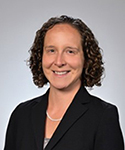
Sarah Gullbrand, PhD is currently a Research Health Scientist at the Corporal Michael J. Crescenz VA Medical Center (CMCVAMC), with a co-appointment as a Research Assistant Professor in the McKay Orthopaedic Research Laboratory in the Department of Orthopaedic Surgery at the University of Pennsylvania. She earned her PhD in Biomedical Engineering in 2014 from Rensselaer Polytechnic Institute, and was supported by a VA RR&D CDA-1 during her postdoctoral research at Penn and the CMCVAMC. Dr. Gullbrand is currently supported by an RR&D CDA-2. Her research program is focused on leveraging knowledge of the pathomechanisms of musculoskeletal disease to translate tissue engineering and regenerative medicine approaches to treat joint degeneration, with a particular focus on the intervertebral disc and diarthrodial joints. She serves as co-Leader for Research Core #2 of the CReATE Motion Center and Chairs the Education and Outreach Committee.
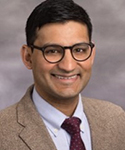
Prathap Jayaram, MD is the Director of Clinical Regenerative Medicine in the department of Orthopedic Surgery at Emory University. Dr. Jayaram is a clinician-scientist who specializes in non-operative sports medicine with a focus on advanced ultrasound and regenerative strategies for tendon and cartilage injuries. His medical practice is focused on various sports injuries using diagnostic ultrasound and advanced ultrasound-guided procedures such as adipose derived cell therapy. His research focus is to translate the study of osteoarthritis into a basic understanding of development and establish therapeutic strategies towards early pilot clinical trials. With respect to the CReATE Motion center, he co-leads Core 3 along with Dr. Baker in scaling pre-clinical proof of concept studies into early feasibility clinical trials. Dr. Jayaram completed his sports medicine training at Stanford University where he treated Veterans collegiate and professional athletes. Completed PMR residency as chief resident at Baylor College of Medicine.
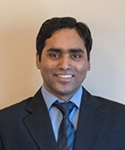
Nazir Khan, PhD is an Assistant Professor in the department of orthopaedics at Emory University Musculoskeletal Institute. He has extensive expertise in skeletal biology, stem cells, and regenerative approaches for cartilage repair. His studies led to the discovery of disease memory in induced pluripotent stem cells (iPSCs) derived from OA chondrocytes which influence cartilage preservation and immunomodulatory ability in a surgical model of experimental OA in rats. Pertinent to the CReATE Motion Center, he co-leads Core 1 along with Drs. Patel and O’Donnell to guide expansion and banking protocols for isolated cells, induction SOP generation for pluripotent cell sourcing, and multi-model characterization of both chondro-regenerative and immunomodulatory phenotype. His expertise in stem cell-based cartilage regeneration will help develop and implement biomanufacturing and quality control infrastructure to progress therapies towards clinical use in Veterans.
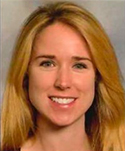
Liane Miller, MD is an Assistant Professor in the Department of Orthopaedic Surgery at the University of Pennsylvania and faculty surgeon at the Corporal Michael J. Crescenz Veterans Affairs Medical Center. She has specialized training in advanced arthroscopic and minimally invasive techniques to treat sports-related and athletic injuries of the shoulder, elbow, hip, and knee after completing an Orthopaedic Sports Medicine Fellowship at the University of Pittsburgh. She completed her Orthopaedic Surgery residency training at the University of Pennsylvania in the six-year dedicated research tract, where she spent a year in the McKay laboratory working under Dr. Robert Mauck on basic science and translational projects examining musculoskeletal tissue healing and regeneration. As a surgeon-scientist, she aims to utilize her knowledge of musculoskeletal pathophysiology to translate tissue engineering, cell-based therapeutics, and regenerative medicine approaches to treat orthopaedic injuries and joint degeneration. She was a Fellow in the T-TERM Fellowship program supported by the Center and is now a full Center member.

Gregory D. Myer, PhD, FACSM, CSCSD is the Director of Emory Sports Performance And Research Center (SPARC) and Professor in the Department of Orthopaedics, Emory University School of Medicine. Dr. Myer has published over 475 medical manuscripts and is recognized for his expertise in injury biomechanics, functional rehabilitation, and human performance neuroscience aimed at discovering treatment strategies that reduce the burden of post traumatic osteoarthritis. Dr. Myer has received numerous awards for his team’s excellence in research and in the past year Dr. Myer was recognized for the Hugh C. McLeod, III, M.D. Award of Excellence from the Arthritis Foundation and the Bart Mann Award for the Advancement of Sports Medicine Research from the American Orthopaedic Society for Sports Medicine. He participates as co-Leader for Research Core #2 of the CReATE Motion Center.

John C. O’Donnell, PhD is a Research Assistant Professor in the Department of Neurosurgery at the University of Pennsylvania, and the Director of Operations, Center for Neurotrauma, Neurodegeneration, & Restoration at the Philadelphia CMC VA Medical Center. His burgeoning lab's research program consists of two primary thrusts: 1) translational study of moderate-to-severe TBI and Disorders of Consciousness, and 2) furthering the Tissue Engineered Rostral Migratory Stream and other tissue engineering approaches to promote repair and regeneration after brain injury. In addition to my tissue engineering experience, I have also gained expertise in scientific commercialization that makes me uniquely qualified to contribute to this Center, both through my own SBIR-funded scientific software startup and through my involvement in the translation/commercialization efforts of Dr. Kacy Cullen’s tissue engineered medical products. He serves as co-Leader for Research Core #1 of the CReATE Motion Center.
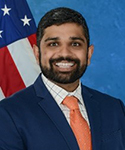
Jay Patel, PhD is a Health Science Specialist at the Atlanta VA Medical Center and an Assistant Professor in Orthopaedics at Emory. His program focuses on the repair and regeneration of musculoskeletal tissues (e.g., cartilage, meniscus), with an emphasis on using micro-scale findings to drive macro-scale therapies. His lab uses a combination of biomechanics, biomaterials, mechano-biology, in vitro systems, and functional in vivo models. Dr. Patel received his PhD in Biomedical Engineering from Rutgers and completed his postdoctoral training at the Philadelphia VAMC and the University of Pennsylvania. Dr. Patel has published over 30 manuscripts and has presented at numerous international conference meetings. Both his graduate and postdoctoral work resulted in patent applications, and the formation of startup companies with active small-business funding, demonstrating his ultimate goal of translating these approaches to the clinic. Currently, Dr. Patel has a Career Development Award 2 through the Department of Veterans Affairs. He serves as co-Leader for Research Core #1 of the CReATE Motion Center.
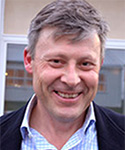
Thomas P. Schaer, VMD is a veterinary surgeon-scientist. He directs the Institute for Medical Translation, New Bolton Center at Penn Vet, a multidisciplinary platform for the mentoring of graduate and undergraduate students in veterinary surgery, the translational sciences and product development. This Institute has emerged as a home for translational large animal research and a technical and intellectual resource. Understanding the clinical value of emerging technologies is a central theme, and we employ this to enhance the rigor of in vivo studies (experimental or natural disease models) through focused and technology-specific animal model development. Studies start on a small scale leading towards GLP pivotal IND- and IDE-enabling studies in support of FDA submissions. This work has so far resulted in the clinical launch of over 16 new technologies spanning trauma, fragility fractures, sports medicine, spine, and pediatrics. With respect to the CReATE Motion Center, he co-leads Core 2 with Drs. Gullbrand, Myer and Baxter in de-risking emerging proof-of-concept studies towards regulatory submission and feasibility clinical trials supported by Core 3.
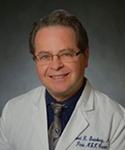
David Steinberg, MD is a Professor of Orthopaedic Surgery and the Associate Director of the Hand Fellowship at the University of Pennsylvania. He is the Chief of Hand Surgery at the Corporal Michael J Crescenz VA Medical Center (CMCVAMC). He completed an orthopaedic trauma fellowship at Cooper University Medical Center and a hand & upper extremity fellowship at Harvard/MGH. His clinical practice encompasses all orthopaedic pathology (predominantly in the upper extremity), including acute trauma to soft tissues, bones and joints, and post-traumatic and degenerative osteoarthritis. Over the last 10 years he has collaborated with Dr. Robert Mauck and others at Penn and the TMRC at the CMCVAMC. They have been studying restoration and bioengineering of articular cartilage in a large animal model, supported with funding from the Department of Veterans Affairs. As leader of RFA #3 for this proposal, he continues to promote research on biologic joint resurfacing for damaged articular cartilage.
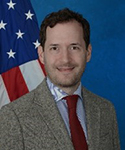
Jarred Kaiser, PhD is an Assistant Professor in the Department of Orthopaedics at Emory University and a Biomedical Engineer at the Atlanta VA Medical Center. Additionally, he currently manages the Biomechanics Core facility in Emory Orthopaedics and the Preclinical Pain and Functional Evaluation facility at the Atlanta VAMC. His current work at the VA focuses on how patient-specific factors in cell injection quality impact pain relief in OA. He received his PhD in Mechanical Engineering from the University of Wisconsin where he established clear mechanical links between abnormal knee cartilage mechanics and early OA in ACL-reconstructed patients using novel dynamic MR imaging. He was a post-doctoral fellow at Boston University and used in situ cellular mechanics on a bone fracture callus to predict tissue differentiation and repair. He was a Fellow in the T-TERM Fellowship program supported by the Center.
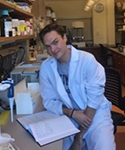
Kevin G. Burt, PhD is a Research Health Scientist in the Translational Musculoskeletal Research Center at the Corporal Michael J. Crescenz VA Medical Center. Dr. Burt received his Ph.D. in Biomedical Engineering from Columbia University in 2022, where his research evaluated dysregulated inflammation as a driver of intervertebral disc degeneration using small animal models. Currently, under the mentorship of Dr. Carla Scanzello and Dr. Robert Mauck, his primary research interests aim to identify mechanisms in which the immune system communicates with resident connective tissue cell types and drives inflammation and joint degeneration. He aims to apply similar techniques to study this cellular crosstalk across multiple connective tissues, including the knee joint and intervertebral disc. He is currently supported by a DEI Supplemental Award associated with a merit award under Dr. Harvey Smith and Robert Mauck. He is a Fellow in the T-TERM Fellowship program supported by the Center.
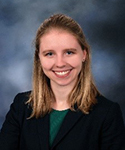
Meghan E. Kupratis, PhD is a postdoctoral research fellow at the University of Pennsylvania and the CMC VAMC. Dr. Kupratis received her PhD in Biomedical Engineering from the University of Delaware in 2023, where her research evaluated relationships between articular cartilage mechanical properties and lubrication in health, disease, and repair. Her current work in Dr. Robert Mauck’s examines how interactions between mechanical and metabolic cues modulate meniscus mechanobiology. She is also investigating phenotypic and mechanoresponsive specialization of the meniscus during development. Collectively, Dr. Kupratis aims to leverage multiscale biomechanics and mechanobiology techniques to develop therapeutic and rehabilitation techniques for connective tissue injuries and osteoarthritis. She will be a Fellow in the T-TERM Fellowship program supported by the Center.

Anna Woodbury, MD, MSc, CAc is an Associate Professor of Anesthesiology and Pain Management at Emory and a physician-scientist at the Atlanta VA. She founded the Division for Pain Management at the Atlanta VA in 2014 where she served as Division Chief until 2016, and currently serves as the Vice Chair of Research for the Department of Anesthesiology at Emory University. She is double-board certified in Anesthesiology and Pain Medicine and licensed to practice Acupuncture in Georgia. She is active in clinical research at both Emory and VAHCS, having completed both a CDA-1 and CDA-2 through VA Rehabilitation Research and Development funding mechanisms to study centrally-acting neuromodulation techniques for chronic widespread pain syndromes in veterans. She has been a member of the national Committee on Pain Medicine for the American Society of Anesthesiologists and has served on institutional and federal grant review committees including NIH and VA study sections. She has presented nationally and published book chapters, clinical reviews, and more than 30 articles on integrative medicine and neuromodulation. She has also edited 2 editions of a Pain Management Board Review book. Her clinical expertise and research interests include the use of non-pharmacologic and regenerative therapies to better target and optimize treatments improving pain and function while reducing risks for her patients.
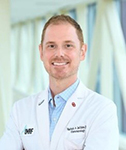
Dr. Matlock Jeffries is the director of the Arthritis Research Unit and an Associate Professor in the Arthritis & Clinical Immunology Program at the Oklahoma Medical Research Foundation, Research Scientist and rheumatology physician at the Oklahoma City VA Medical Center, and an Associate Professor of Medicine at the University of Oklahoma Health Sciences Center. He is an active member of the American College of Rheumatology (ACR), serves as the clinical abstract co-chair and executive committee member of the ACR annual meeting planning committee, and is an active member of the Osteoarthritis Research Society International (OARSI) and Orthopedic Research Society (ORS). He serves as a standing member an of NIH study section. Dr. Jeffries runs a translational research laboratory focused on osteoarthritis (OA) funded by the NIH, Department of Defense, ARPA-H, and the VA, aimed at understanding the contributions of epigenetic changes and various microbiome niches to the onset and progression of OA using both patient samples and animal models. The ultimate goal of his work is to develop both predictive biomarkers and therapeutic strategies for OA, an incredibly common disease that is the leading cause of disability in the US.
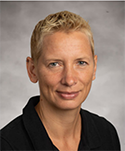
Svenja Illien-Junger, PhD, is an Assistant Professor in the Department of Orthopaedics at the Emory University School of Medicine. Dr. Illien-Junger is an active member of the International Society for the Study of the Lumbar Spine (ISSLS) and the Orthopaedic Research Society (ORS), where they serve as the Education Co-Chair of the ORS Spine Section. Dr. Illien-Junger’s NIH-funded research focuses on intervertebral disc biology, specifically addressing the associated cellular and molecular changes in aging and injury-related disc degeneration. Another focus is on the roles of nutrition and injury on disc degeneration and the development of repair strategies, with the Veterans’ population in mind, who have an elevated risk for developing painful disc degeneration.

Dr. Su Chin Heo is an Assistant Professor in Orthopaedic Surgery and Bioengineering at the University of Pennsylvania. His lab advances nuclear mechanobiology, tissue engineering, and regenerative medicine to drive innovative therapeutic strategies for musculoskeletal repair. His research explores the interplay between biophysical cues and cell biology in tissue remodeling, with a focus on musculoskeletal regeneration. He also develops methods to control the cellular microenvironment and study genome organization at the single-cell level. He is a pilot grant awardee for the CReATE Motion Center. He is a member of the Biomedical Engineering Society (BMES) and the Orthopaedic Research Society (ORS).

Mercy Udoji MD, CMQ, FASA is an Associate Professor of Anesthesiology and Pain Medicine at Emory University School of Medicine. She completed her medical education at Vanderbilt University School of Medicine followed by Anesthesiology residency at Duke University Medical Center and a Pain Fellowship at Weill-Cornell Tri-Institute/New York Presbyterian Hospital. Dr. Udoji practices anesthesiology and pain medicine at the Atlanta VA Medical center. She serves on multiple local, regional, and national committees pertaining to acute and chronic pain including as a voting board member for the VHA Acute Pain Medicine Committee. Her research interest is in knee osteoarthritis pain and spans the continuum between acute and chronic pain, including regenerative and opioid sparing methodologies for the prevention of chronic post TKA pain.
New Members-More Information coming soon!
Yejia Zhang, M.D., Ph.D